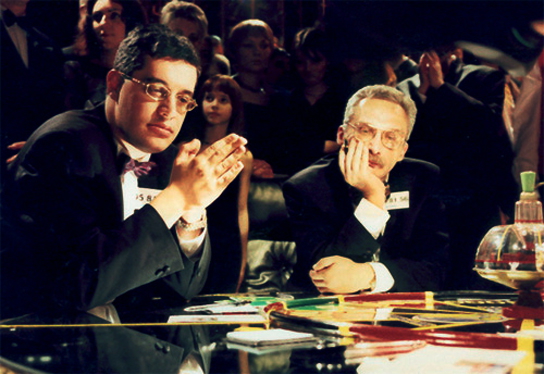How to play the intellectualist game. It’s a verbal literacy game that allows players to increase their vocabulary. Suits for middle school or older. Take into account players vocabulary, don’t choose words they don’t know at all.
Purpose of the games is to guess the hidden word. One of the players is chosen as the host, the others are the guessers.
- The host thinks of a word (noun, common, singular, nominative; you can also agree on whether toponyms can be used) and tells the guessers the first letter of the word.
- For example, the word is “wreckage”. The host says: “w”.
- The guessers think of words starting with the opened letters of the hidden word. In the start, it’s one letter. And they think of a definition for the word. Whoever thinks first proposes his definition.
- For example, the word “wisdom” is chosen by the guesser. And the proposition is: “Is it a body of knowledge and experience?” or “Is it something old men usually possess?”.
- The host guesses it’s wisdom and says “It’s not wisdom”. If the guesser acknowledges that this is the word, then in this game the word “wisdom” is already played, it is forbidden to propose it in the game. The question also cannot be repeated.
- For example, the guesser proposes the word “walrus” and says “Is it an animal?”
- The host says: “It’s not a weasel”. Since it’s not the proposed word, the guesser says: “More”. “It’s not a warthog”. “More”. “It’s not a whippet”. Since in response to this question three suitable nouns were named, it is considered that the host repulsed the attack. It is forbidden to repeat this question in this game. Guessers can propose “walrus” again, but with another question. For example “Is it a marine animal?”
- For example, the guesser thinks of “warping” and proposes: “Is it a method of sailing?”. The host took his time to think but failed, so the host says: “Name it”. The player says: “It’s warping”. If the host agrees with the correct spelling and that the word means what was proposed, then the host tells the next letter of the hidden word and we go back to the step 3, but guessers have more open letters (“wr”, “wre”, and so on). So all the words proposed by guessers now should start with the same letters. If the host disagrees with the word, players are welcome to discuss or have the spelling or meaning checked.
- For example, the player thought of the same word as the hidden word, i.e. “wreckage”, and proposes “Is it the remains of a destroyed ship?”. If the host can name three words starting with the already opened letters that fit the question, but not “wreckage”, then the host says them and the attack considered repulsed. If the host cannot do that, then the host says: “Yes, it’s wreckage”. The guesser wins, the game is over. Usually, the next game is started where the winner becomes the host.
- If the guesser thinks he guessed the hidden word, then he may name it directly by asking: “Is it wreckage?” So the host can do nothing but to acknowledge: “Yes, it’s wreckage”. The guesser wins, the game is over. Usually, the next game is started where the winner becomes the host.
The game is over when the hidden word is named by the guessers or all guessers decided to surrender. Next game may be started. Usually, if the guessers surrendered, the host persists. If the hidden word was named, then the next host is the winner of the previous game. But this is not necessary, players may agree on another system of taking turns.
